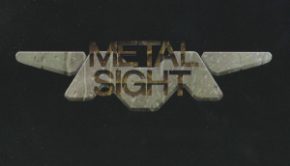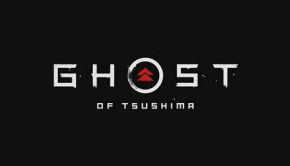Imported Game Music
 |
Album Title: Imported Game Music |
| Record Label: Bandcamp |
|
| Catalog No.: N/A |
|
| Release Date: December 25, 2014 |
|
| Purchase: Download at Bandcamp |
Overview
Imported Game Music is a free collection of songs from Japanese game music composers and friends, assembling together 12 different composers of diverse origins. For the most part the album is very experimental, as the producer Kevin Pescoran gave the composers free reign to explore and represent themselves uniquely. The album can be a challenging listen at times, but anyone willing to invest some time into the album will find it a fresh experience with plenty of interesting turns.
Body
The opening track, “Monster’s Dream” by Tenpei Sato (Disgaea, Phantom Brave) encapsulates many of the ideas of the album, with an electro-rock backbone that makes room for several different elements such as the synthesizer, piano, and a peculiar vocal chorus. It’s a stylish track with plenty of atmosphere, although perhaps a bit more could have been done with the short melody. Later tracks “Flash Memory” by Takayuki Nakamura (Virtua Fighter) and “Scramble” by Takahiro Izutani (Bayonetta) are in similar veins. “Flash Memory” has a very slow progression, slowly adding in instruments onto a jazzy backbone for roughly two minutes, before opening up with glitchy flurries of the piano and a wailing electric guitar. It can certainly feel random at times, but that’s the appeal of the track. “Scramble” is a more straightforward pump-up track that’s short and doesn’t have a ton of substance, but easily keeps the momentum of the album going forward.
Some of the tracks are heavier on the electronic elements. The second track “Fists” by Hideyuki Fukasawa (aka eiceph) (Chaos Legion, Street Fighter IV) is fairly straight dubstep, and unfortunately overuses a particular sample, dampening what is otherwise a fine track. “Flow and Discipline” by Taito’s Hirokazu Koshio (aka Jupiter-B) is ethereal and a bit hypnotic with its steady, somewhat atonal groove and quiet male vocal samples. It’s a strange track for sure, but one of the more interesting ones. Yakuza’s Hidenori Shoji (aka Marusho) writes a gritty electronica piece “Marusho Service” which also unfortunately is lacking memorable substance, but like others keeps the album moving rousingly.
On the lighter side of the electronic tracks, Go Sato (Raiden) writes “Sky High Elation”, a high-energy track that brings images and feelings of cruising at high speeds down a highway on a sunny day. It hearkens back to older gaming days with a dated but very charming feel. Following is “Cleome” by Hideaki Kobayashi (aka DR. COVA) (Phantasy Star) which provides the sole break on the album from the energy. The track is a chill and dreamy, and at times strange and a bit dissonant. The samples used are a bit low quality, but as with “Sky High Elation” adds to the character of the piece and making it more unique. Later on, “Two Chord” by Akira Ueda (who is known for his work in game design rather than composing) brings some light improv over a groovy two-chord harmony. It’s a lengthy piece, and Ueda keeps things moving throughout in a manner that could easily go for a funky area BGM.
The remaining tracks are more unique amongst the others, and certainly stand among the highlights of the album. “Sennichimae-Indian” by Yu Shimoda (Rockman) is peculiar track with Japanese chanting throughout its Asian rock backdrop. Things become most interesting near the end when the strangeness gets amped up with a frenetic violin and added wailing. On paper it sounds like a track to stay away from, but it all comes together in a rather entertaining fashion. “140430MachikoroRemix” by Yuu Miyake (Katamari Damacy) has a robotized vocal over a steady but evolving marching drum pattern. It’s another of the longer tracks with a lot going on in it, including some fun appearances from brass instruments but it’s also incredibly catchy and easy to get into despite its unpredictability.
The final track, “1264-2years” is certainly one of the best, handled by members of the band DEIDARA. Unlike the others, this one has a clear sense of narrative and progression, having at times cinematic feeling to it. There are orchestral and electronic elements through, and while the orchestral elements can feel a little low quality at times the arrangement is solid and the excitement of the piece makes up for it. It even feels like an ending piece to a soundtrack (perhaps of a contemporary retro tribute game), and finishes off the album fittingly and on a rousing high note.
Summary
Imported Game Music is a neat yet challenging album that may take some effort to appreciate for some listeners. There are a few missteps throughout, but album still moves well and entertains with a general high energy and a combination of futuristic and retro sounds. Any songs that are not completely engaging or memorable still work fine as accompaniment tracks and bridges between the stronger songs. Some tracks are very different from what their respective composer’s regular output, but this just provides an interesting new look into these composers and what they can offer when not tied down to a particular setting or story. It’s also a great sampler of some of the lesser known Japanese composers, and hopefully this album will add some of those composers onto the wider public’s radar.
Do you agree with the review and score? Let us know in the comments below!
4
Posted on February 26, 2015 by Christopher Huynh. Last modified on February 26, 2015.














